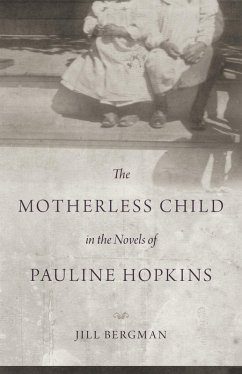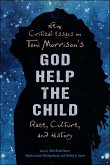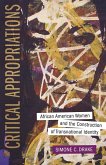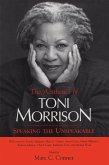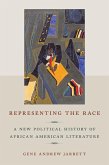Well known in her day as a singer, playwright, author, and editor of the Colored American Magazine, Pauline Hopkins (1859--1930) has been the subject of considerable scholarly attention over the last twenty years. Academic review of her many accomplishments, however, largely overlooks Hopkins's contributions as novelist. The Motherless Child in the Novels of Pauline Hopkins, the first book-length study of Hopkins's major fiction, fills this gap, offering a sustained analysis of motherlessness in Contending Forces, Hagar's Daughter, Winona, and Of One Blood.
Motherlessness appears in all of Hopkins's novels. The motif, Jill Bergman asserts, resonated profoundly for African Americans living with the legacy of abduction from a motherland and familial fragmentation under slavery. In her novels, motherlessness serves as a trope for the national alienation of post-Reconstruction African Americans. The longing and search for a maternal figure, then, represents an effort to reconnect with the absent mother -- a missing parent and a lost African history and heritage. In Hopkins's oeuvre, the image of the mother of African heritage -- a source of both identity and persecution -- becomes a source of power and possibility.
Bergman shows how historical events -- such as Bleeding Kansas, the execution of John Brown, and the Middle Passage -- gave rise to a sense of motherlessness and how Hopkins's work engages with that of other contemporaneous race activists. This illuminating study opens new terrain not only in Hopkins scholarship, but also in the complex interchanges between literary, African American, psychoanalytic, feminist, and postcolonial studies.
Motherlessness appears in all of Hopkins's novels. The motif, Jill Bergman asserts, resonated profoundly for African Americans living with the legacy of abduction from a motherland and familial fragmentation under slavery. In her novels, motherlessness serves as a trope for the national alienation of post-Reconstruction African Americans. The longing and search for a maternal figure, then, represents an effort to reconnect with the absent mother -- a missing parent and a lost African history and heritage. In Hopkins's oeuvre, the image of the mother of African heritage -- a source of both identity and persecution -- becomes a source of power and possibility.
Bergman shows how historical events -- such as Bleeding Kansas, the execution of John Brown, and the Middle Passage -- gave rise to a sense of motherlessness and how Hopkins's work engages with that of other contemporaneous race activists. This illuminating study opens new terrain not only in Hopkins scholarship, but also in the complex interchanges between literary, African American, psychoanalytic, feminist, and postcolonial studies.
Dieser Download kann aus rechtlichen Gründen nur mit Rechnungsadresse in A, D ausgeliefert werden.

